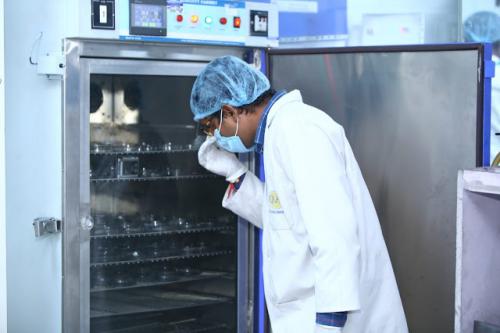How to Ensure Prescribed Quality of Coal to Achieve Best Boiler Performance and Efficiency?

In power
generation, coal remains to be the prime source of energy. A thermal power
plant utilizes the combustion energy of coal to operate boilers that help run
the turbines for power generation. The overall performance, output and
efficiency to be derived from the entire setup is primarily dependent among
many things of the quality of coal being used for combustion.
In a thermal
power plant, thermal energy is generated by combusting of coal so as to produce steam
from boilers that run the turbines for producing electricity. Utilizing a lower
grade of coal or coal below par of the prescribed quality standards can negatively
impact the performance as well as efficiencies of a thermal power generation
system.
Optimizing sustainability
and efficiency of thermal power systems with use of high-quality coal
The heat
energy generated from burning of coal is utilized for functioning of a boiler. The
chemical characteristics of coal exceptionally determine boiler performance, efficiency,
sustainability as well as longevity.
Traditionally,
thermal power plants have faced a harsh backlash due to their inefficiencies
and pollution levels. However, with use of optimum and prescribed quality of
coal for combustion, we can sufficiently optimize the overall sustainability
and efficiency levels of a thermal power plant.
As the
performance of a boiler setup in a power generation plant relies heavily on
coal characteristics, the working as well as efficiency standards of the same
can vastly be impacted by the type of coal being utilized.
Significance
of coal analysis test for optimized thermal energy power generation
The chemical
and combustion characteristics of coal play an imperative role in determining
output performances from a boiler in a thermal power plant. Maximizing the
efficiency, sustainability and performance levels in power generation are
vastly impacted by the quality standards of coal.
Below stated
are the various parameters of a coal analysis test and how each one impacts
boiler performance -
- Identify the Carbon - Hydrogen ratios of coal
As coal is
heterogenous hydrocarbon element, it possesses dynamic Carbon and Hydrogen
ratios which result in varied combustion behaviors from various samples of
coal. The coal testing lab Noida helps identify the exact Carbon-Hydrogen
ratios.
- Identify Calorific Value
As the
calorific value of coal is the total quantity of heat energy generated from
combustion, knowing the same can help optimize boiler performance and safety. It
also determines the amount of coal to be utilized for generating a unit of
electricity.
- Slagging and fouling factor
To derive an
early prediction of boiler performance while ensuring minimum slagging and
fouling, coal testing is imperative. Identifying these factors can precisely
calculate the levels of slagging and fouling to be formed inside the
boiler.
- Environmental regulations compliance
Coal testing
determines the levels of solid as well as gaseous impurities generated as a result
of combustion. A coal analysis test can help thermal power plants to conform
with the regulatory standards of pollutants generated and also optimize the
quantity of fuel burnt.
All these
coal testing analyses come in handy to help maintain the safety and performance
of boilers in a thermal power plant. QA Testing Laboratories excels in its
analytical testing of coal to guarantee optimized production of
electricity.
Post Your Ad Here
Comments